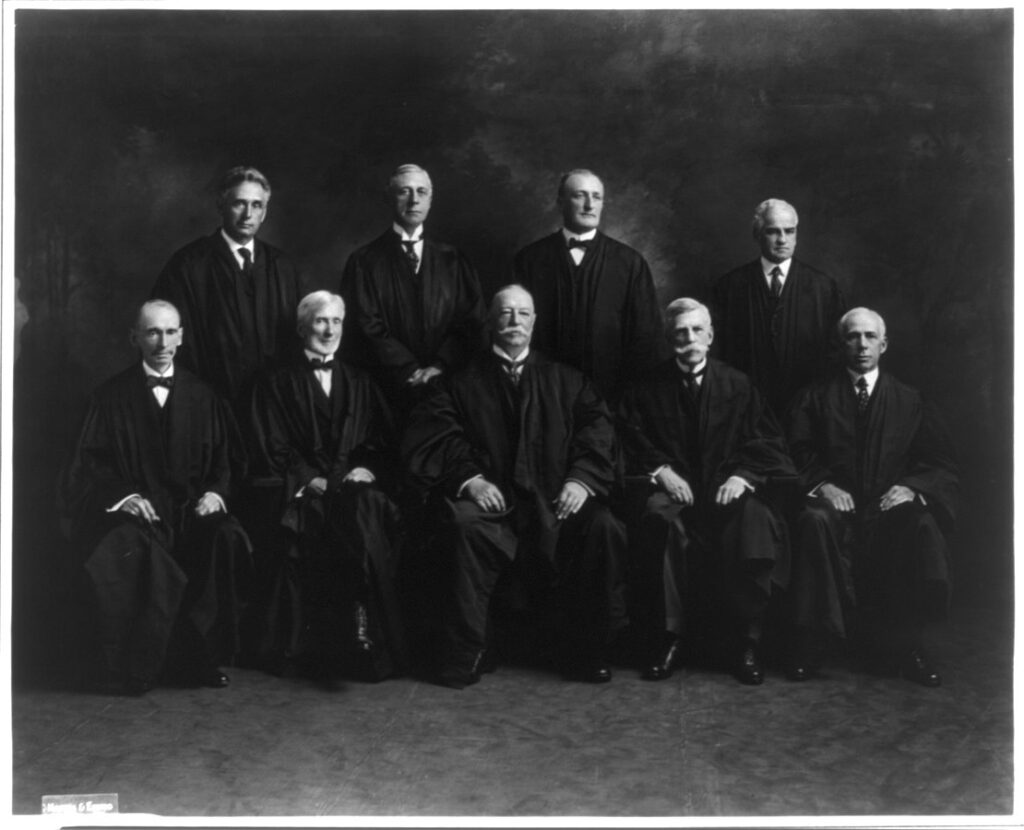Newberry v. United States of 1921

On May 2, 1921 a split 5-4 Supreme Court ruled that Congress did not have the authority to regulate political party primaries or nomination processes. They argued that the Constitution only granted Congress the power to regulate general elections, not primaries. This decision was based on the interpretation that primaries were not considered “elections” under the Constitution.
The ruling severely limited the scope of the Federal Corrupt Practices Act (FCPA) and federal authority over campaign finance in primary elections. The decision highlighted the gaps in campaign finance regulation and fueled subsequent efforts to strengthen federal oversight. After Newberry, states were tasked with regulating primary elections, leading to a patchwork of campaign finance laws.
There was significant dissent among the justices, who disagreed with the majority’s interpretation of the Constitution and the FCPA. Justice Holmes wrote one of the dissenting opinions, joined by Justices Brandeis and Clarke. His dissent was based on the belief that Congress had the constitutional authority to regulate primary elections in the same way it could regulate general elections.
Holmes argued that primaries were an integral part of the electoral process, and as such, Congress had the right to regulate them under its power to regulate elections. He believed that primaries, though held within the states, were still part of the broader federal electoral system. He pointed out that the Constitution grants Congress the authority to regulate the “times, places, and manner” of elections for federal offices (Article I, Section 4).
Holmes emphasized that the FCPA was designed to prevent corruption in the federal election process, and that primary elections were just as susceptible to the same corrupt influences as general elections. Therefore, it made sense for Congress to regulate campaign spending during primaries.
Holmes referenced previous cases in which Congress had been granted broad authority over election-related matters, including those that affected the conduct of elections even within individual states.
Justice McReynolds also wrote a dissenting opinion, agreeing with Justice Holmes’ reasoning. McReynolds, a staunch conservative, was known for his opposition to Progressive-era reforms, but in this case, he sided with those advocating for stronger federal regulation of election practices.
McReynolds believed that primaries, especially in the context of the federal Senate race, were not purely state matters, but part of the overall federal election system. He argued that the constitutional authority granted to Congress over “manner” and “places” of federal elections extended to primaries as well.
McReynolds emphasized that the reason for regulating elections was to prevent corruption. He argued that primary elections, which could be heavily influenced by money and special interests, were just as susceptible to corruption as the general elections themselves.
The dissenting justices believed that the majority’s interpretation of the 10th Amendment, which reserves powers not granted to the federal government for the states, was overly restrictive. They argued that Congress had the power to regulate all aspects of the electoral process, including primaries.
The dissenters believed that the need to prevent corruption in the election process outweighed concerns about state autonomy in managing primary elections. They contended that money and influence could unduly affect the integrity of primaries just as much as general elections.
While the majority opinion in Newberry v. United States limited federal authority over primaries, the dissenting justices expressed concerns about corruption and federal power that would continue to shape later debates on campaign finance and electoral reform.
